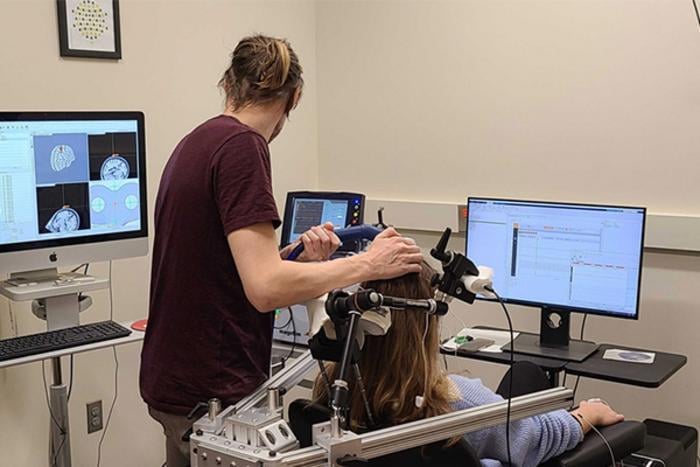Researchers at the University of Minnesota Twin Cities have made a discovery that could lead to new treatments for various brain disorders, such as schizophrenia, depression, Alzheimer’s disease, and Parkinson’s disease. For the first time, they demonstrated that non-invasive brain stimulation can alter a specific brain mechanism directly related to human behavior.
The study, recently published in Nature Communications, used a technique called “transcranial alternating current stimulation” to modulate brain activity. By applying a small electrical current to the brain, the timing of when brain cells are active is shifted, leading to a change in the connections between brain cells, known as neuroplasticity.
Alexander Opitz, a biomedical engineering associate professor at the University of Minnesota, explained that their findings showed an unexpected shift in brain activity over time as they added external stimulation. This phenomenon, called “neural phase precession,” occurs when brain activity gradually changes in relation to a repeating pattern, such as external stimulation.
The discovery of this new technique demonstrates how the brain adapts to external stimulation and can be used to increase or decrease brain activity. Opitz believes that targeting specific brain functions that affect behaviors could have the most significant impact, potentially improving long-term memory and learning.
The long-term goal of this research is to apply this technique in the treatment of psychiatric and neurological disorders, leading to more personalized therapies for conditions like schizophrenia, depression, Alzheimer’s disease, and Parkinson’s disease.
The research team, led by Opitz, included co-first authors Miles Wischnewski and Harry Tran, as well as other team members from the University of Minnesota Biomedical Engineering Department. The study was supported by the National Institute of Health (NIH), the Behavior and Brain Research Foundation, and the University of Minnesota’s Minnesota’s Discovery, Research, and InnoVation Economy (MnDRIVE) Initiative.
#BrainStimulation #Neuromodulation #BrainDisorders #MedicalBreakthrough
If our reporting has informed or inspired you, please consider making a donation. Every contribution, no matter the size, empowers us to continue delivering accurate, engaging, and trustworthy science and medical news. Independent journalism requires time, effort, and resources—your support ensures we can keep uncovering the stories that matter most to you.
Join us in making knowledge accessible and impactful. Thank you for standing with us!

